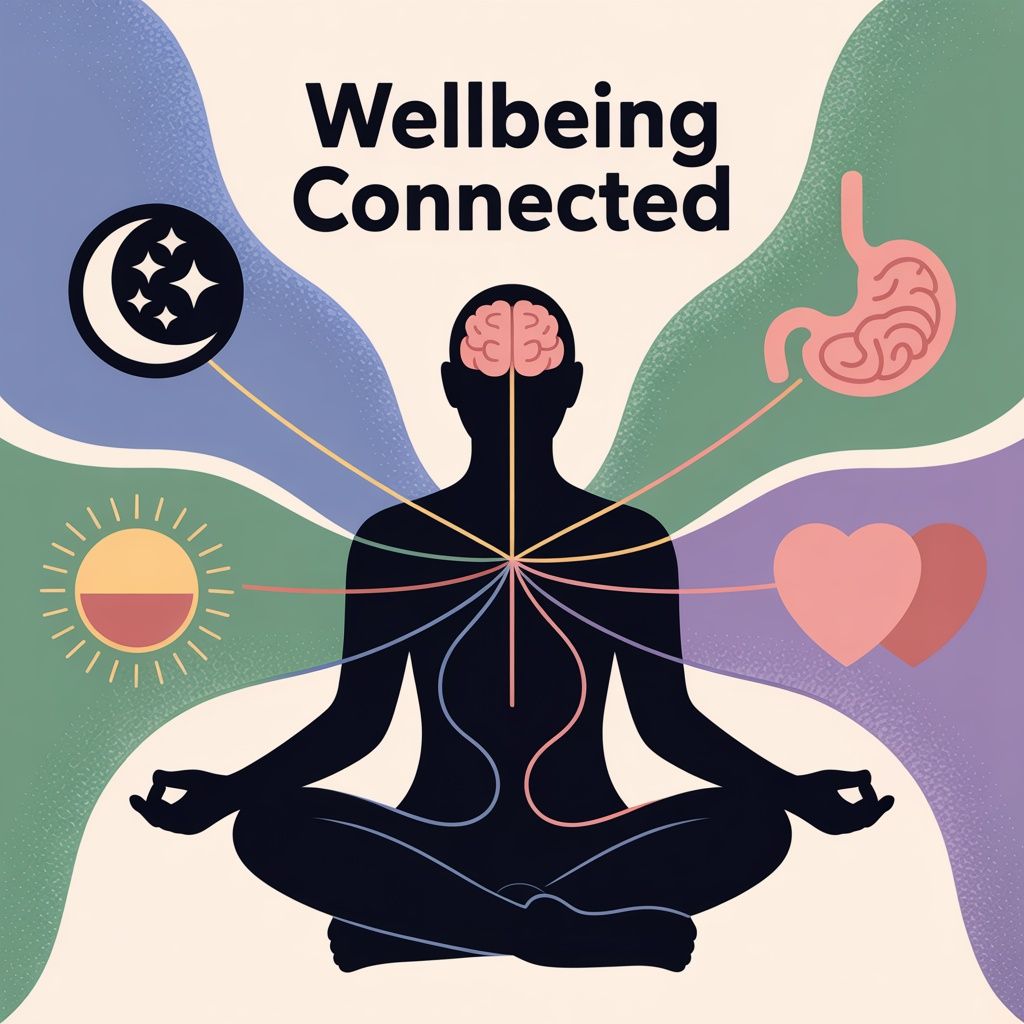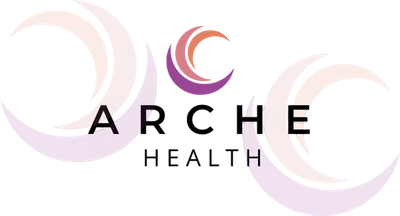The Hidden Connections: How Your Stress Response Affects Everything Else - Copy

Post #2 in our Root Cause Wellness Series
Hey there, beautiful humans!
Last week, you started discovering your personal stress signature, and I've been loving the messages you've sent about your "aha moments." One person wrote: "I never realized my afternoon brain fog happens exactly when my stress peaks!"
That's EXACTLY what we're diving into today. Here's something that might blow your mind: Your stress response isn't just about feeling overwhelmed. It's the master conductor of an entire orchestra in your body and most of us have no idea it's running the show.
The Web You Never Knew Existed
When I was doing research on stress resilience, one thing kept showing up in the data: stress doesn't exist in isolation. It's connected to literally everything else happening in your body. But here's what's fascinating, these connections show up differently for different people.
Remember Sarah? (I'm changing names, but this is a real patient story.) She came to me exhausted, saying she'd tried "everything" for her energy crashes. Supplements, better sleep hygiene, cutting caffeine: nothing worked. Then we mapped her stress signature.
Turns out, her people-pleasing stress response was triggering a cascade that affected her blood sugar, disrupted her digestion, and even changed how her body processed nutrients. Once we addressed the stress pattern, everything else started falling into place.
This is why generic wellness advice feels so frustrating because it's only looking at one piece of your interconnected puzzle.
The Hidden Connections Most People Miss
Let me share the most common ripple effects I see in my practice:
Connection #1: Your Stress Style → Your Sleep Architecture
Mobilizers (those fight-or-flight folks) often struggle with falling asleep because their system is still "revved up."
Immobilizers (freeze-or-fawn types) typically fall asleep easily but wake up feeling unrested because their nervous system never fully recovered.
The missed connection: You're not just a "bad sleeper" your daytime stress patterns are literally programming your nighttime recovery.
Connection #2: Your Stress Response → Your Digestive Patterns
Here's something wild: Your gut has more neurons than your spinal cord. When your stress signature activates, it changes everything from stomach acid production to how well you absorb nutrients.
Mobilizers often get "stress stomach," heartburn, rapid digestion, or that "butterflies" feeling.
Immobilizers tend toward sluggish digestion, bloating, or that heavy feeling after meals.
The missed connection: Your digestive issues might not be about what you're eating, but how your nervous system is processing food.
Connection #3: Your Stress Patterns → Your Energy Cycles
This is where it gets really interesting. Your stress signature doesn't just drain energy it creates specific energy patterns throughout your day.
Some people are "stress borrowers" - they use stress hormones for fuel in the morning but crash hard later.
Others are "stress accumulators" - they start okay but their energy steadily depletes as stress compounds.
The missed connection: Your energy management strategy needs to match your stress processing style, not some generic "morning routine."
Connection #4: Your Nervous System State → Your Relationships
Here's one that surprised even me in my research: Your stress signature affects how you connect with others.
When you're in chronic stress mode, your brain literally changes how it reads social cues. You might misinterpret neutral expressions as negative, or struggle to feel emotionally available even when you want to connect.
The missed connection: Relationship struggles often improve dramatically when we address underlying nervous system patterns.
Action Step #1: The Domino Detective (This Week)
Now that you've been tracking your stress signature, let's map the ripple effects:
Each day, notice:
- What happens to your digestion during/after stressful moments?
- How does stress affect your energy 2-4 hours later?
- What changes in your sleep on particularly stressful days?
- How do you connect with others when you're stressed vs. calm?
Pro tip: Don't judge what you find, just get curious. You're gathering data about your unique internal ecosystem.
Action Step #2: The Connection Experiment (Choose One)
Pick ONE connection that surprised you most and experiment with interrupting the pattern:
If stress affects your digestion:
- Try 3 deep belly breaths before eating
- Eat your next meal somewhere calm and quiet
- Notice: Does changing your nervous system state change your digestion?
If stress affects your sleep:
- Do your micro-recovery moment 2 hours before bed
- Create a "transition ritual" between day-stress and night-rest
- Notice: Does addressing daytime stress change your sleep quality?
If stress affects your energy:
- Try a 2-minute energy reset at your typical crash time (gentle movement for immobilizers, calming activity for mobilizers)
- Notice: Can you interrupt the energy drain pattern?
Action Step #3: The Support System Audit (Weekend Project)
Here's something powerful: Your environment either supports your stress resilience or undermines it.
Audit these areas:
- Physical space: Does your home/office support your nervous system or activate it?
- Information diet: Are your news/social media habits supporting or stressing your system?
- Relationship dynamics: Which people help regulate your nervous system vs. dysregulate it?
- Daily rhythms: Are you working with your natural energy patterns or fighting them?
Make ONE small adjustment in the area that needs it most.
The Beautiful Truth About Your Connections
Here's what I want you to remember: Every connection works both ways.
Yes, stress affects your sleep, digestion, energy, and relationships. But that also means when you support one area, you're supporting them all. When you honor your stress signature, you're not just managing stress, you're optimizing your entire internal ecosystem.
You're not broken into separate pieces that need fixing. You're a beautifully integrated system that needs understanding.
What's Coming Next
Next week, we're diving into something I see every single day in my practice: "Why Your Energy Crashes Aren't About Willpower (And What Actually Helps)."
Because once you understand your stress connections, we can start working with your natural energy patterns instead of fighting against them.
I'm curious: Which connection surprised you most? And what did you discover when you started connecting the dots?
Send me a message at mohanmuvvala@archelife.com - I love hearing about your discoveries.
Remember, this is detective work, not detective judgment. Be gentle with yourself as you explore.
With warmth,
Dr. Mohan Muvvala, DO/MBA
Integrative Family Medicine | Arche Health
P.S. If mapping these connections feels overwhelming, that's information too. Sometimes we need to start with nervous system support before we can do the deeper detective work - and that's perfectly okay.
Want to work with someone who understands these hidden connections? Learn more about our whole-person approach at Arche Health - where we take the time to see how all your pieces fit together.
